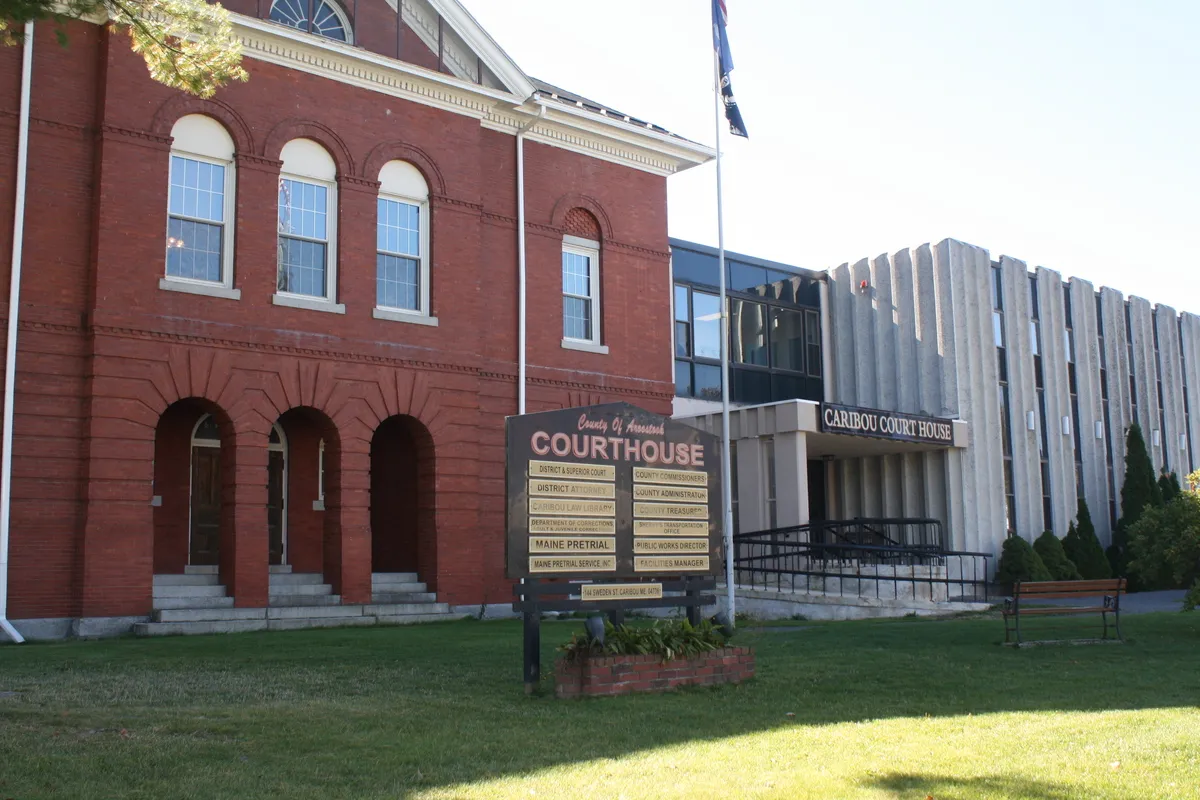
A current and an aspiring member of Caribou City Council have jointly filed a complaint in Maine Superior Court challenging an amendment that the City Council made to a cannabis ordinance in July. They say that the amendment violates Maine law and the city charter.
In the complaint, filed in Caribou Superior Court on Aug. 27 and obtained by the Bangor Daily News, Councilor Dan Bagley and Ben Tucker, who is running for a seat on the council this fall, allege that councilors usurped the authority of the Planning Board by changing the city’s cannabis ordinance without planning board review.
“The decisions and actions of the City Council were arbitrary, capricious, and unreasonable, and constitute abuses of discretion,” one of the allegations reads.
Councilors originally approved the change to help Richardson Remedies, a longtime local cannabis business that had been upended by a 2024 state law change. But in the process, the amendment appears to have made another business — the city’s only current medical dispensary — noncompliant with the ordinance. The procedural chaos has illustrated the challenges that can face communities responding to Maine’s changing marijuana laws.
The move also puts Bagley, one of two councilors to initially vote against the amendment, in the unique position of fighting his peers in court. He has opposed the decision because it violated city procedures, he has said, and not because of any views for or against marijuana business.
“I’ve never argued the merits of the proposal,” Bagley said in the council’s August meeting. “I’ve never said in one way or the other that I’m for or against it. I’ve argued against the fact that we didn’t follow our processes and put ourselves at legal risk completely unnecessarily.”
City officials declined to comment on the lawsuit because it’s an ongoing legal matter.
The amendment was approved by a 5-2 vote in a July 28 City Council meeting. It repealed and replaced section 39 of the city’s land use ordinances, which regulates cannabis dispensaries in the city, and rezoned dispensaries exclusively to R-3 districts, or residential areas outside the city’s urban center.
Bagley and Tucker are challenging the approval through Rule 80b of the Maine Rules of Civil Procedure, which allows for judicial review of local governmental actions.
The pair’s primary objection to the ordinance change is based in a section of the city’s land use ordinances that mandates all amendments to those ordinances have to be initiated by the Planning Board, or requested to the Planning Board by the City Council or an individual.
City attorney Rick Solman cited that rule in a July 2 memo to City Manager Penny Thompson, in which Solman said it was his opinion that the proposed ordinance “must be directed back to the planning board,” before proceeding. The council did not do so.
Planning board chair Amanda Jandreau resigned in August in the wake of the council’s decision.
“I have always believed in contributing to my community where my expertise could be of value. Unfortunately, I no longer feel that the current direction of Caribou’s City Council aligns with that belief,” Jandreau wrote in her resignation letter.
In an Aug. 25 council meeting, Bagley put forth a motion to rescind the July vote. It failed by a vote of 4-3.
But the council acknowledged the requirement for Planning Board approval and voted to send the approved ordinance to the board to be integrated into the city code.
The Planning Board tabled their review of the proposal in a Sept. 11 meeting, citing that it would be “premature” to act before the complaint filed by Bagley and Tucker is resolved.
Previously, Richardson Remedies, run by owner Derrell Richardson, had operated as a medical marijuana “caregiver” in what was classified as an office, similar to that of a doctor or dentist.
But the “Act to Protect Liberty and Advance Justice in the Administration and Enforcement of the Cannabis Legalization Act and the Maine Medical Use of Cannabis Act” — or LD 40 — passed by the 131st Legislature, reclassified the business as a “caregiver retail store.”
Caribou does not allow caregiver retail stores. And under state law, an individual cannot operate more than one caregiver retail store. Richardson already has a caregiver retail location in Presque Isle that operated in that capacity before the law change.
Because of those reasons, a state inspector shut down his Caribou location during a regular inspection in March. Richardson could still deliver to qualified patients, but those patients could no longer go into the building and look at products. Transactions became “blind sales,” as he described it to the council in July.
In order to return to normal, Richardson began an application to become a medical dispensary. There were still problems. The city’s cannabis ordinance only allowed nonprofit medical dispensaries, and those dispensaries were only allowed in commercial, industrial and health-related districts. Richardson’s business is for-profit and located at 9 Bog Road, which is within an R-3 residential district.
The amendment the council approved in July removed those barriers. But Safe Alternatives, a nonprofit and the city’s only current medical dispensary, operates in RC-2 commercial district, which is no longer among the districts dispensaries are allowed in.
Jandreau cited that issue in a letter read at the July 28 meeting, as did Solman in his memo.
The court complaint is still pending.



